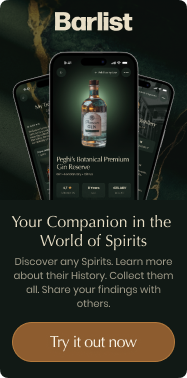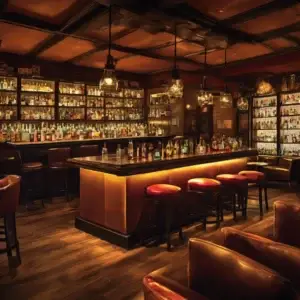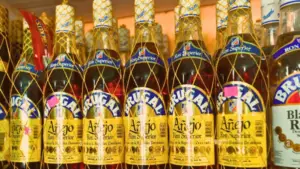Europe’s spirits culture is rooted in centuries of tradition, but in 2025, a new generation of craft distilleries is pushing boundaries while honoring heritage. From Scandinavian foragers to experimental whiskey makers in France, these distilleries are reshaping the landscape with innovation, transparency, and respect for local terroir. Here are ten European craft distilleries to watch as they shape the future of spirits.
Stauning Distillery – Denmark
Founded in 2005 in a remote village on Denmark’s west coast, Stauning Distillery has become one of Europe’s most respected whiskey producers and Craft Distilleries in Europe. Using locally grown rye and barley, Stauning employs traditional floor malting and direct-fired stills. Its whiskies are bold and spicy, capturing the windswept character of the Danish landscape.
Kyrö Distillery Company – Finland
From a converted dairy in Isokyrö, Kyrö Distillery , one of the famous craft distilleries, has built a reputation for rye-based spirits, both gin and whiskey. Known for its playful branding and innovative recipes, Kyrö highlights how Finnish rye and creativity can shine in global markets. Its Napue Gin even won the International Wine & Spirit Competition’s Gin & Tonic Trophy in 2015, putting the distillery firmly on the map.
Milk & Honey Distillery – Israel (European Market Focus)
Though located in Tel Aviv, Milk & Honey Distillery has gained recognition across Europe as a pioneer of single malt whiskey in the Middle East. Its exports have reshaped perceptions of terroir, proving that European consumers welcome bold new regions when paired with quality and innovation.
Micil Distillery – Ireland
In Galway, Micil Distillery revives centuries of poitín making, bringing Ireland’s ancient spirit into the modern age. Founded in 2016 by Pádraic Ó Griallais, whose family has made poitín for six generations, Micil combines heritage recipes with craft distilling. Today, it produces poitín, gin, and whiskey, anchoring Galway’s role in Ireland’s spirits revival.
Copper Rivet Distillery – Craft Distilleries in England
Situated in Chatham’s historic dockyard, Copper Rivet Distillery, one of the best European craft destilleries emphasizes grain to glass production. Using only locally sourced Kentish cereals, the distillery creates whiskey, gin, and vodka with complete transparency. Its flagship Masthouse Whisky has drawn acclaim for balancing innovation with traditional English craft.
Distillerie de Paris – Craft Distilleries in France
In the heart of Paris, Distillerie de Paris stands out as an urban pioneer. Founded by brothers Nicolas and Sébastien Julhès, it produces avant-garde gins, rums, and experimental spirits in small batches. By operating within the city, it connects directly to culinary culture, bridging the worlds of fine dining and craft distilling.
Rademon Estate Distillery – Northern Ireland
Rademon Estate Distillery, home of Shortcross Gin, was founded in 2012 by Fiona and David Boyd-Armstrong. The distillery has since expanded into whiskey production, making it one of Northern Ireland’s most exciting new names. Its focus on hand crafted, family run values and sustainable methods shows how craft can thrive alongside heritage.
Eimverk Distillery – Iceland
From Reykjavik, Eimverk Distillery produces Flóki Icelandic Single Malt Whisky. Using 100 percent locally grown barley and sheep dung smoked malt, it captures Iceland’s unique environment. The distillery also produces Vor Gin and Víti Brennivín, reinforcing Iceland’s emerging role in Europe’s craft spirits scene.
Bimmerle Private Distillery – Craft Distilleries in Germany
In Baden, Bimmerle Private Distillery has transitioned from a traditional fruit distiller into a craft innovator. Its Wild Child and Needle Blackforest Dry Gin brands highlight the resurgence of German gin, while the distillery’s focus on sustainability and local botanicals ensures relevance in the modern market.
Arbikie Highland Estate – Scotland
On Scotland’s east coast, Arbikie Distillery is one of the most forward thinking producers in the country. The Stirling family grows all raw ingredients on their farm, producing whiskey, gin, and vodka from field to bottle. Arbikie is also leading in climate positive spirits, including Nàdar Gin, the world’s first carbon negative gin, setting a benchmark for sustainable distilling.
The Road Ahead
These ten distilleries show that the future of European spirits lies in craft, innovation, and respect for tradition. Whether it is Stauning refining Danish rye whiskey, Micil reviving Irish poitín, or Arbikie leading sustainability, Europe’s new wave of distilleries demonstrates that heritage and progress can coexist. For Barlist readers, these producers represent the diversity and creativity shaping tomorrow’s spirits culture.
Barlist is a new generation mobile app entirely dedicated to the world of spirits. Designed for enthusiasts,
curious minds, mixologists, and professionals, it offers a unique gateway to a world of flavors, stories, expertise, and discoveries. Developed by Copa Drinks SRL, Barlist allows users to discover tens of thousands of spirits divided into more than a hundred categories and subcategories.






